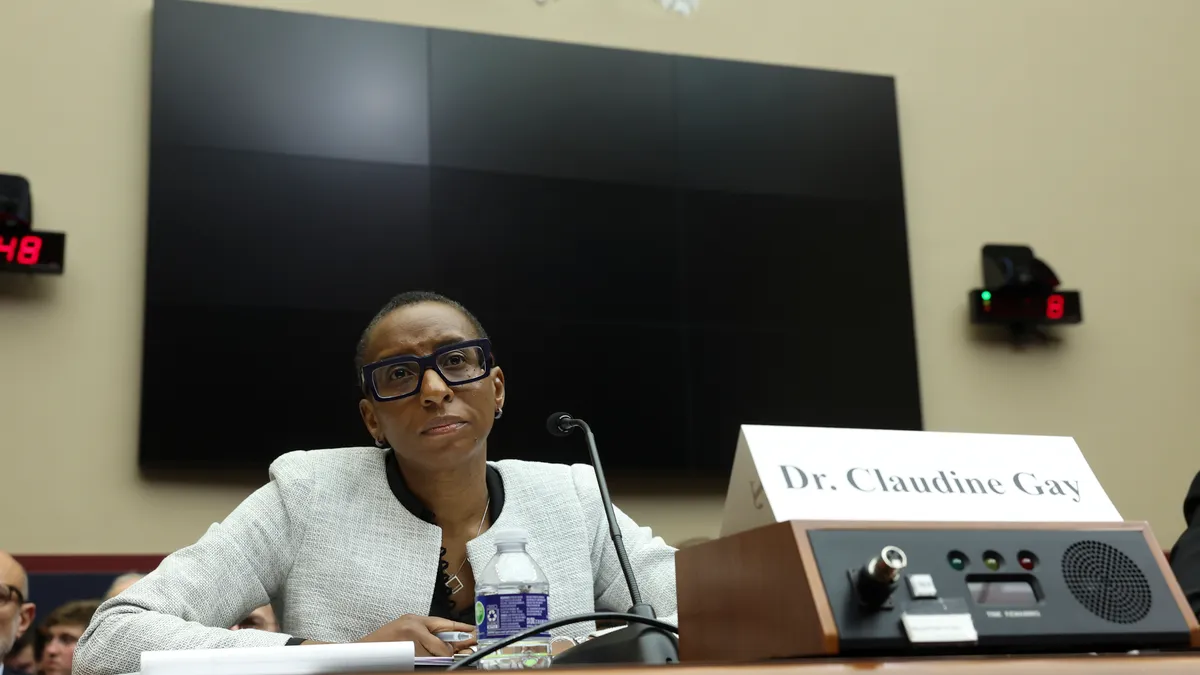Harvard President Claudine Gay announced Tuesday that she will step down from the position after just six months in the role, marking the shortest tenure in the Ivy League institution’s history.
Gay said she reached the decision after speaking with the Harvard Corporation, the university’s highest governing body.
“After consultation with members of the Corporation, it has become clear that it is in the best interests of Harvard for me to resign so that our community can navigate this moment of extraordinary challenge with a focus on the institution rather than any individual,” Gay said in a statement.
Gay will return to her faculty position at Harvard. Alan Garber, the university’s provost and chief academic officer, will serve as interim president until officials find a new leader.
The resignation came shortly after Gay faced a new round of accusations that she plagiarized in many of her published works. The latest complaint was published in The Washington Free Beacon, a conservative online news publication that has also surfaced prior plagiarism accusations against Gay.
The growing allegations added to mounting pressure for Gay to resign.
The Harvard Crimson, the university’s student newspaper, recently published a student editorial asking Gay to step down over the plagiarism allegations and her response to the latest Israel-Hamas war.
And last month, a largely-Republican group of congressional lawmakers urged Gay to resign following her testimony in December about antisemitism on college campuses. They took issue with her refusal during the hearing to give a yes-no answer about whether calls for the genocide of Jewish people would violate Harvard’s policies.
Gay — along with the presidents of the Massachusetts Institute of Technology and the University of Pennsylvania — instead answered that their universities would only punish such speech if it crossed the line into harassment.
Free speech groups have backed this legal interpretation, though the leaders’ responses have been widely derided. Former Penn President Liz Magill resigned just four days after the hearing amid the backlash.
The Harvard Corporation said it accepted Gay’s resignation with sorrow.
“While President Gay has acknowledged missteps and has taken responsibility for them, it is also true that she has shown remarkable resilience in the face of deeply personal and sustained attacks,” the corporation wrote in a statement Tuesday.
Gay, the university’s first Black president and second woman leader, echoed those comments in her own statement.
“It has been distressing to have doubt cast on my commitments to confronting hate and to upholding scholarly rigor — two bedrock values that are fundamental to who I am — and frightening to be subjected to personal attacks and threats fueled by racial animus,” she said.
Following the congressional hearing, the corporation’s members noted in a Dec. 12 statement that she apologized over her testimony and said they continued to back her. But in the same statement, they noted that they became aware of allegations over three of Gay’s articles and found “a few instances of inadequate citation” in them.
Gay requested additional citations and quotation marks in two articles, according to the statement.
But a week later, the university flagged phrases with insufficient citations in her 1997 doctoral dissertation. Harvard officials said they found instances of “duplicative language without appropriate attribution” and said Gay would correct her dissertation.
In the wake of those allegations, the House Committee on Education and the Workforce announced that it would expand an investigation into Harvard to also cover accusations that Gay plagiarized her work.
Opinions about Gay’s alleged infractions have differed.
Some students and academics have described the accusations as overblown. On the other hand, an anonymous member of the Harvard College Honor Council wrote an op-ed in The Harvard Crimson calling Gay's mistakes serious and arguing that they reflect a troubling pattern.















